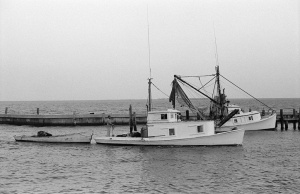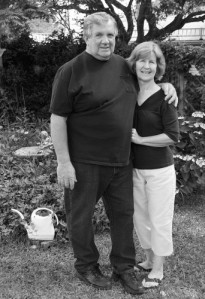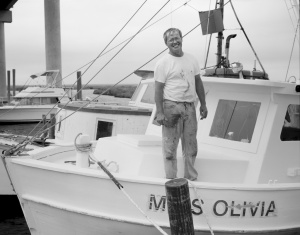The decay and ultimate demise of a wooden fishing boat is a sad spectacle, although fishermen themselves generally are not very sentimental about their boats. Fishermen value a boat as long as it can do the work that it was built for. When it can’t, a boat has no value and is often stripped of its hardware and craned ashore where it can be taken to the dump. In the past, a fisherman might abandon a boat in a marsh or even burn it.
I first photographed the Linda in 1985. In that photo (below), she was tied up at the dock of Luther L. Smith & Son fish house in the Down East town of Atlantic in North Carolina. She was built by Ambrose Fulcher of Atlantic in 1939 as a runboat for the long-haul fishing trade, but she also shrimped (as can be seen by her shrimp nets), clammed and crabbed. She was a versatile boat.
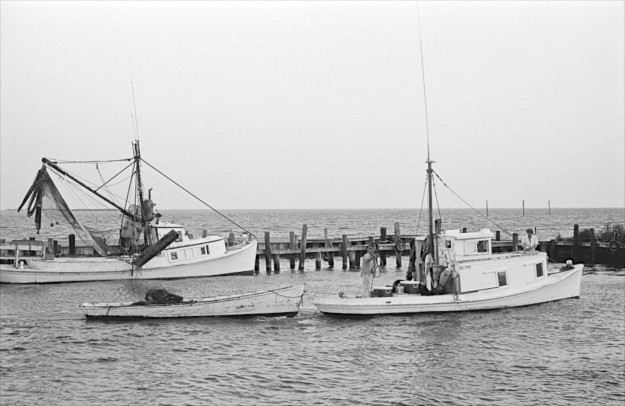
Linda (at dock) in Atlantic NC in 1985 (all photos © Lawrence Earley).
Twenty years later (2005), I photographed Linda again at the Smith fish house. In the photograph she is obviously near the end of her working career.
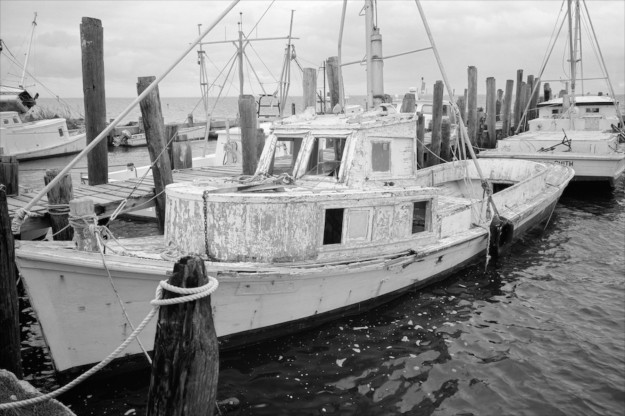
Linda in 2005
I photographed Linda from 2005 until 2011 as she literally went to pieces. Her bilge pump failed in 2007 and in 2011, she was destroyed by Hurricane Irene.
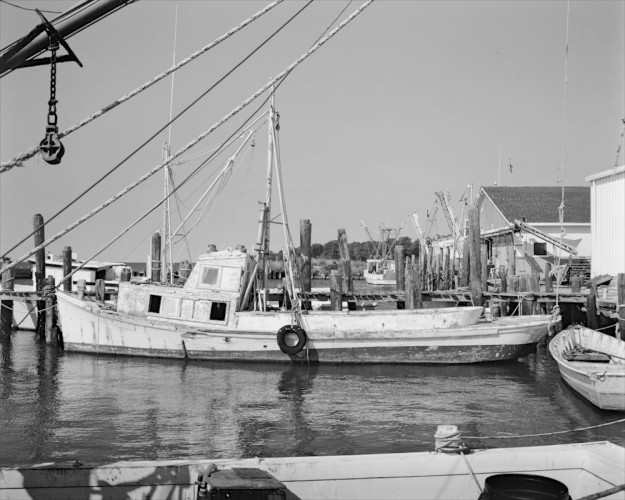
Linda in 2006
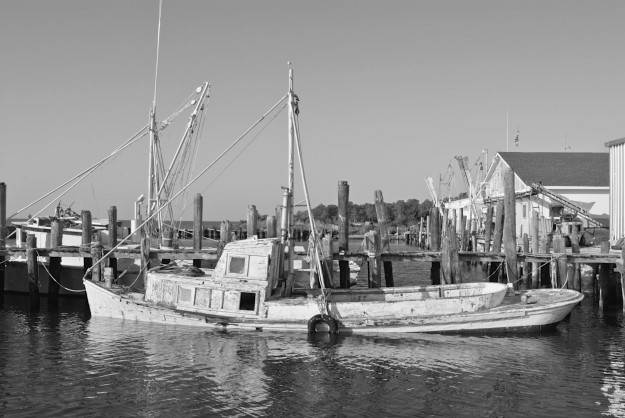
Linda in 2008
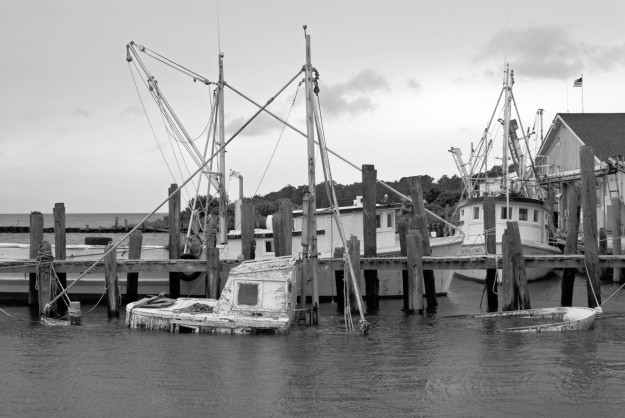
Linda in 2010
Battered by the sea and by storms, wooden fishing boats have only a limited lease on life. Linda had unusually long and useful life on the water—a workboat built in 1939 is lucky to have lasted as long as she did. But she will be remembered. Like all old workboats, Linda played an important role by linking people, families and communities in a web of stories and memories. The stories and memories associated with a boat are like family tales told around the dinner table and passed down from one generation to another. They are as important to community life as family stories are to family life.
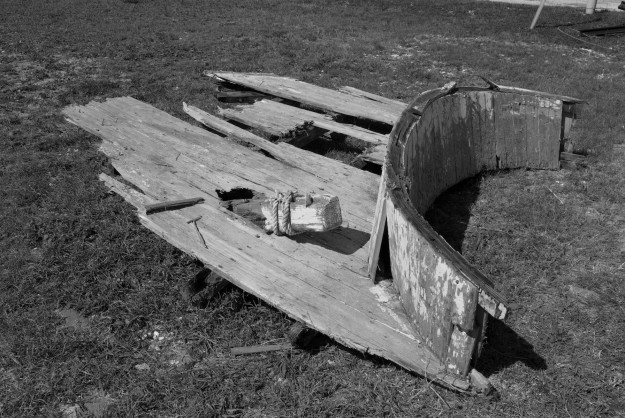
Linda destroyed by hurricane in 2011
